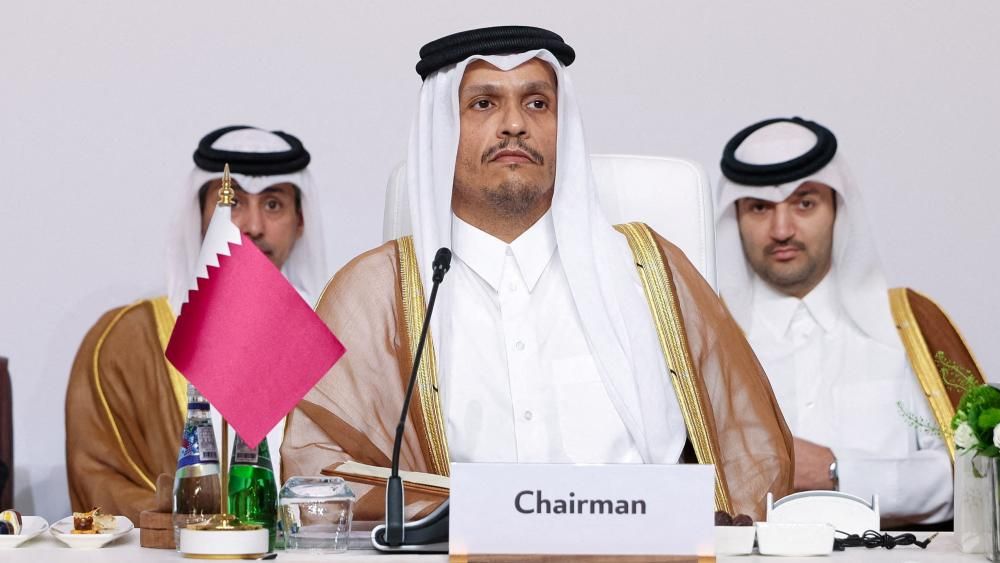The Middle East has once again found itself at the epicenter of international attention after a shocking escalation that saw an Israeli strike target the Qatari capital, Doha. In response, Qatar convened an Arab-Islamic Emergency Summit, drawing leaders and representatives from across the Muslim and Arab world to discuss the unfolding crisis. The emergency gathering, held under intense global scrutiny, represents not just a reaction to an act of aggression but a symbolic turning point in regional politics. It is a moment where alliances, historical grievances, and modern-day geopolitics collide. The summit highlights both Qatar’s role as a mediator in regional conflicts and the deep divisions that still challenge the Arab-Islamic bloc in uniting against perceived external threats.
- Why Qatar’s Role Matters in Regional Politics
- Details of the Israeli Strike on Doha
- Inside the Arab-Islamic Emergency Summit
- The Humanitarian Dimension
- Global Reactions to the Summit
- Historical Context of Arab-Israeli Tensions
- Economic Implications of the Crisis
- Possible Outcomes of the Summit
- Expert Opinions on the Crisis
- FAQs
- What triggered the Arab-Islamic Emergency Summit in Qatar?
- Why is Qatar significant in this crisis?
- What actions did the summit decide on?
- How does this affect global energy markets?
- Could this crisis affect normalization agreements between Israel and Arab states?
- Conclusion
The attack on Doha marks a dangerous precedent that could reshape the balance of power in the region. Beyond the immediate political consequences, it has triggered humanitarian concerns, diplomatic maneuvering, and renewed debate over the future of Middle Eastern peace. Understanding the significance of this summit requires looking into the broader historical tensions, the strategic role of Qatar, and the potential outcomes that could shape regional and global politics for years to come.
Why Qatar’s Role Matters in Regional Politics
Qatar, despite its small geographic size, has long punched above its weight on the international stage. Known for hosting major diplomatic talks—including those involving the Taliban and U.S. negotiators—Doha has established itself as a neutral ground in many of the world’s most contentious disputes. Its wealth from natural gas exports has enabled it to wield soft power through media outlets like Al Jazeera, investments across the globe, and extensive humanitarian initiatives.
In the context of Arab-Israeli tensions, Qatar has historically walked a delicate tightrope. While maintaining relations with Western powers, particularly the United States, it has also supported Palestinian resistance groups politically and financially. This dual identity has often placed it at the heart of Middle Eastern controversies, making an Israeli strike on Doha particularly provocative.
The decision to host the Arab-Islamic Emergency Summit is not just about defending its sovereignty but also about reclaiming leadership in a fragmented Arab world. Qatar’s ability to gather leaders from across the Islamic spectrum underscores its diplomatic influence and its determination to channel outrage into a unified political response.
Details of the Israeli Strike on Doha
The Israeli strike that triggered the emergency summit is being described as one of the most audacious moves in recent years. According to regional reports, the attack targeted facilities in the capital, raising questions about Israel’s broader military strategy. Israel has long justified such strikes as preemptive measures against threats from militant groups, but this attack on Qatari soil marks an expansion of its traditional scope.
Analysts suggest that the strike may have been intended as a warning to Qatar over its alleged support for Palestinian factions. Yet, it carries the risk of backfiring by galvanizing the Arab and Islamic world against Israel. Already, casualty reports and footage of destruction in Doha have circulated widely across social media, fueling public anger and putting immense pressure on Arab governments to take concrete action.
The incident not only raises security concerns for Qatar but also questions the future of Israeli relations with countries that have signed normalization agreements in recent years. If Israel is seen as willing to strike even a wealthy Gulf state with close U.S. ties, it could shake confidence in the fragile normalization process known as the Abraham Accords.
Inside the Arab-Islamic Emergency Summit
The emergency summit in Doha drew participation from leaders, ministers, and envoys representing more than 40 Arab and Islamic nations. Among the key participants were Saudi Arabia, Egypt, Turkey, Iran, and Pakistan, each with their own strategic interests and historical baggage.
The summit was characterized by fiery speeches, calls for solidarity, and debates over what form of collective action should be taken. Qatar’s Emir, Sheikh Tamim bin Hamad Al Thani, opened the summit with a statement condemning the attack as an unprecedented violation of international law and an assault on the sovereignty of all Arab and Islamic states.
While some leaders pushed for strong measures such as oil embargoes, suspension of peace talks, and coordinated sanctions, others urged restraint to avoid further escalation. This highlighted the enduring difficulty of forging unity in the Arab-Islamic bloc, where rivalries and conflicting alliances often undermine collective decision-making.
Nevertheless, the summit concluded with a joint communiqué pledging political solidarity, economic cooperation, and coordinated diplomatic pressure against Israel. Importantly, it also appealed to the United Nations and international community to take action, signaling that the bloc is seeking both regional and global avenues to address the crisis.
The Humanitarian Dimension
Beyond politics and diplomacy, the Israeli strike on Doha has created pressing humanitarian concerns. Reports from the Qatari Ministry of Health indicate dozens of casualties, including civilians, with infrastructure damage affecting hospitals, schools, and residential areas. Humanitarian organizations have warned that the incident could spark a broader refugee crisis if instability spreads.
Qatar, which has traditionally been a donor to global humanitarian causes, now finds itself in the position of recipient. The irony is not lost on observers, as the country famous for funding relief efforts in Gaza and Syria must now deal with devastation within its own borders. International aid agencies have begun mobilizing resources, while neighboring states pledged emergency assistance during the summit.
The humanitarian crisis adds a moral weight to the summit’s decisions. For many Arab and Islamic leaders, the images of destroyed neighborhoods in Doha mirror those long seen in Gaza or Lebanon, reinforcing a shared narrative of vulnerability to external aggression.
Global Reactions to the Summit
The Arab-Islamic Emergency Summit did not unfold in isolation. Major world powers, including the United States, Russia, and China, responded swiftly to the developments. Washington, in particular, finds itself in a delicate position. As a close ally of both Israel and Qatar, it faces the challenge of balancing security assurances with diplomatic restraint.
The Biden administration called for de-escalation while reaffirming Qatar’s importance as a regional partner. Russia and China, meanwhile, seized the moment to criticize Western double standards, with Moscow offering to mediate talks and Beijing emphasizing the need for respect of sovereignty.
The European Union also condemned the strike, though its response was more subdued, reflecting divisions among member states regarding policy toward Israel. Global civil society organizations, however, were vocal, with human rights groups demanding accountability and independent investigations into the attack.
Historical Context of Arab-Israeli Tensions
To fully appreciate the gravity of this moment, it is essential to situate it within the historical arc of Arab-Israeli tensions. Since the mid-20th century, the conflict over Palestine has been the defining issue shaping relations between Israel and its neighbors. Wars in 1948, 1967, and 1973 left deep scars, while the Oslo Accords in the 1990s offered hope that was later dashed.
In recent years, the Abraham Accords seemed to signal a new era, with several Gulf states, including the UAE and Bahrain, normalizing ties with Israel. Yet, critics warned that these deals ignored the core issue of Palestinian statehood and left the region vulnerable to renewed violence.
The strike on Doha is seen by many analysts as a potential breaking point. If Gulf states begin to view Israel as a threat rather than a partner, the fragile normalization process could collapse, returning the region to a cycle of hostility reminiscent of earlier decades.
Economic Implications of the Crisis
The summit also addressed the potential economic fallout of the Israeli strike. Qatar is one of the world’s largest exporters of liquefied natural gas (LNG), and any disruption in its production or distribution could send shockwaves through global energy markets. Initial reports suggested that while major facilities were not directly hit, investor confidence has been shaken.
Some participants at the summit floated the idea of using oil and gas exports as leverage against Israel and its allies, drawing parallels to the 1973 Arab oil embargo. While such measures may be difficult to coordinate in today’s interconnected global economy, the threat alone underscores the economic dimension of the crisis.
Additionally, the strike has implications for Qatar’s role as a hub for international investment and tourism. With Doha preparing to host major events in the coming years, including cultural and sporting showcases, the perception of insecurity could affect both its economy and soft power projection.
Possible Outcomes of the Summit
Several scenarios could emerge from this moment. The first is a deepening of Arab-Islamic unity, where symbolic gestures translate into concrete actions such as trade restrictions, diplomatic withdrawals, or coordinated lobbying at the United Nations. This would represent a significant shift in the balance of power in the region.
Another possibility is that divisions among Arab states prevent meaningful action, reducing the summit to symbolic posturing without substantive consequences. This outcome would embolden Israel and frustrate public opinion across the Muslim world, potentially fueling radicalization.
A third scenario involves mediation by global powers, where the summit’s energy is channeled into renewed international negotiations. This could potentially revive discussions around Palestinian statehood, albeit in a highly volatile context.
Expert Opinions on the Crisis
Experts have weighed in with varying perspectives on the summit’s significance. Dr. Hanan Ashrawi, a prominent Palestinian politician, described the summit as “a turning point where the Arab and Islamic world must decide whether to stand up collectively or remain fragmented.”
Meanwhile, Middle East analyst Fawaz Gerges argued that the strike on Doha “may have been a miscalculation by Israel, one that could backfire by uniting a region that has often been too divided to act.”
Others remain skeptical. Some scholars note that similar summits in the past have failed to produce lasting results, pointing to the Arab League’s history of issuing strong statements without concrete follow-through.
FAQs
What triggered the Arab-Islamic Emergency Summit in Qatar?
The summit was convened in response to an Israeli strike on Doha, which caused casualties and damage in the Qatari capital. The attack was seen as a violation of international law and a threat to regional stability.
Why is Qatar significant in this crisis?
Qatar plays a unique role in Middle Eastern diplomacy, often acting as a mediator in conflicts while also maintaining ties with both Western powers and Palestinian groups. Its position makes it central to any regional response.
What actions did the summit decide on?
The summit concluded with a joint declaration pledging political solidarity, coordinated diplomatic efforts, and appeals to the international community. While stronger measures were debated, no immediate military or economic sanctions were announced.
How does this affect global energy markets?
Qatar is a leading exporter of liquefied natural gas. While production facilities were not directly impacted, the perception of risk has unsettled global energy markets, raising concerns about long-term stability.
Could this crisis affect normalization agreements between Israel and Arab states?
Yes. If Israel is increasingly viewed as a threat, the Abraham Accords could face setbacks. Some states may reconsider their ties, especially if public opinion pressures leaders to distance themselves from Israel.
Conclusion
The Arab-Islamic Emergency Summit in Doha is more than a diplomatic gathering; it is a defining moment in the trajectory of Middle Eastern politics. The Israeli strike on Qatar has shaken regional dynamics, thrusting Doha into the center of a storm that blends history, religion, and geopolitics. While the summit showcased solidarity, the true test lies in whether words will translate into action.
Qatar’s role as both a victim of aggression and a host of dialogue positions it as a pivotal player in shaping the region’s future. The humanitarian, economic, and political stakes are immense, and the world is watching closely to see if this moment will lead to deeper unity or yet another missed opportunity. What is certain is that the echoes of this summit will resonate far beyond Doha, influencing the course of Arab-Israeli relations and the balance of power in the Middle East for years to come.







